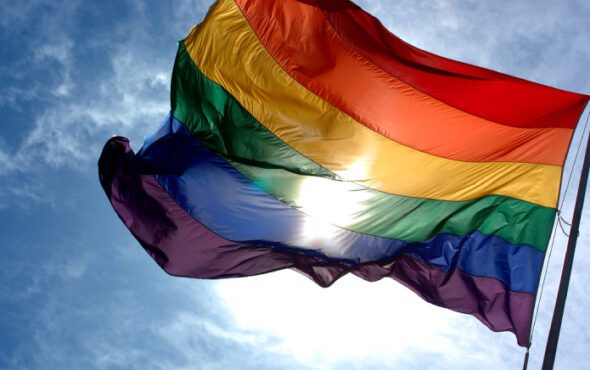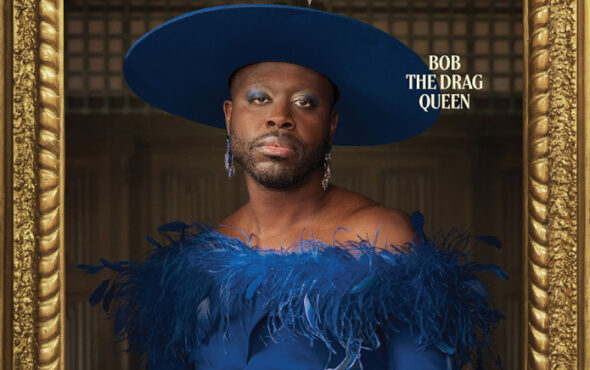
Lebanon’s interior minister has been criticised by activists after he told security forces to crack down on LGBTQ+ events during Pride month and said such gatherings would spread “sexual perversion” and run against the country’s religious values.
Rights groups have responded with derision and anger to minister Bassam Mawlawi’s message, published by the ministry on Friday, saying they have the right to free expression and would not be deterred.
“It is perplexing why a caretaker minister thinks it is part of his duties to incite violence and hate speech against a marginalized community of his own citizens,” Lebanon’s biggest LGBTQ+ group, Helem, said in a statement.
Most countries in the Middle East do not tolerate open celebrations of LGBTQ+ life, with many criminalising lesbian, gay, and transgender citizens, and reports of social exclusion and abuse commonplace.
Lebanon is considered one of the most liberal countries in the region, despite laws that punish gay sex with up to a year in prison, which activists say are often used to detain LGBTQ+ people.
In 2017, the country hosted the Arab world’s first LGBTQ+ Pride – although celebrations have been targeted by threats and pressure from religious institutions, and are limited to relatively small-scale events as opposed to large parades.
The interior ministry said Mawlawi contacted the General Security Directorate intelligence agency and the Internal Security Forces (ISF) “regarding the prevention of gatherings aimed at promoting sexual perversions, after the ministry received communications from religious authorities rejecting the spread of this phenomenon”.
Lebanon’s top Sunni cleric, Grand Mufti Sheikh Abdul Latif Derian, said the country “would not allow the legalisation of homosexuality” in a separate statement on Friday.
Neither the Directorate or the ISF immediately returned calls for comment. Mawlawi’s memo is not legally binding as it contradicts the constitution and legal norms, said legal rights non-profit Seeds for Legal Initiatives.
Rights campaigners say some officials are targeting LGBTQ+ groups to shore up popular support amid an economic crisis that has seen the currency lose more than 90% of its value and forced nearly three quarters of the population into poverty.
“This is scary because it threatens queer people’s presence,” Hussein Cheaito, an LGBTQ activist living in Lebanon, told the Thomson Reuters Foundation.
“In Beirut, only very few spaces remain for the community to gather, discuss local affairs, and seek support. Homophobic language has been on the rise since the onset of the crisis.”
‘NO BACKING DOWN’
Other Middle Eastern countries are also launching crackdowns on LGBTQ+ gatherings and expression.
In Turkey, police prevented a Pride march in Istanbul from going ahead on Sunday and detained dozens who had turned out to march in defiance of a ban imposed by local authorities.
Istanbul’s main Istiklal Avenue used to draw tens of thousands of people for the annual march, but President Tayyip Erdogan and his AK Party have toughened their stance against LGBTQ+ freedoms in recent years.
Homosexuality is not a crime in Turkey, but hostility to it is widespread and police crackdowns on the parades have become increasingly tough.
Meanwhile, in Saudi Arabia, where homosexuality carries a death penalty, officials in the Ministry of Commerce confiscated rainbow-coloured toys, clothing, and other items for sale on the basis that they “promote homosexual colours”.
“The items … contradict the Islamic faith and public morals and promote homosexual colours targeting the younger generation,” an official said, in a video posted by the Ministry of Commerce on Twitter.
In Lebanon, Beirut Pride organisers had put up a living billboard that gradually bloomed a rainbow flag together with the message #LoveAlwaysBlooms in a campaign aimed at sparking awareness and building support to decriminalise gay sex.
But within days it was vandalised, with a Christian organisation calling itself “Soldiers of God” posting a video of a person tearing down the flowers.
“The flowers represented members of the LGBTIQ+ community, how beautiful we are, and how resilient we are – a symbol that we always bloom no matter what obstacles we face,” Beirut Pride wrote in a Facebook post sharing images of the destroyed board.
“Our flowers were broken. But our hope for a future of equal rights is burning strong. We will not back down.”
Reporting by Tala Ramadan; Editing by Sonia Elks.
GAY TIMES and Openly/Thomson Reuters Foundation are working together to deliver leading LGBTQ+ news to a global audience.



